In the golden pages of the nation's history, La Son Phu Tu Nguyen Thiep (1723-1804) is engraved with valuable contributions in many fields such as education, politics , and literature. He is considered one of the outstanding figures of the 18th century. Until now, after 3 centuries, the legacy he left behind still retains its value.
In the golden pages of the nation's history, La Son Phu Tu Nguyen Thiep (1723-1804) is engraved with valuable contributions in many fields such as education , politics, and literature. He is considered one of the outstanding figures of the 18th century. Until now, after 3 centuries, the legacy he left behind still retains its value.
Ha Tinh is famous for its land of talented people and talented families. Nguyen Thiep is the one who inherited the quintessence of the famous Nguyen family in Can Loc. According to many historical documents, his ancestors were in Cuong Gian (Nghi Xuan). His grandfather, Nguyen Khai, took a concubine in Nguyet Ao village, Lai Thach commune, La Son district, Duc Quang prefecture, gave birth to children and established the Nguyen family branch here (now Luy village, Kim Song Truong commune, Can Loc district, Ha Tinh). His father, Nguyen Quang Trach, took a wife who was a descendant of the famous Nguyen family in the old Truong Luu village. With his mother's loving care and attention to his studies, Nguyen Thiep soon absorbed the cultural quintessence of his family. From a young age, he loved to study and read books. At the age of 19, he was sent to Thai Nguyen to live with his uncle, Doctor Nguyen Hanh (who was working as the Royal Censor of Thai Nguyen) to study. Not only was he taught by his uncle, but he was also sent by his uncle to Hoang Giap Nguyen Nghiem (father of the great poet Nguyen Du) to study further. Perhaps these were the years when he accumulated the most knowledge, forming the thoughts and thinking of a scholar.
La Son Phu Tu Nguyen Thiep Temple is now located in Luy village, Kim Song Truong commune (Can Loc, Ha Tinh), his hometown. Photo: Thien Vy
Although Nguyen Thiep took exams and held minor positions, that was not his greatest goal. What covered his name was the profound philosophy that he himself accumulated and researched. He taught that philosophy to many generations of students, applied it to political and military strategies, and even literary works.
Nguyen Thiep passed the provincial exam in 1743 and then the national exam in 1756. In 1756, Nguyen Thiep took up the position of Instructor in Anh Do district (now Anh Son). In 1762, he was appointed as District Chief of Thanh Chuong (Nghe An). This was also the time when he witnessed the corruption of the royal court. Disgusted with the weakness and abuse of power of King Le and Lord Trinh, he chose to leave the officialdom and return to teaching. In 1768, Nguyen Thiep asked to resign from office and set up Bui Phong camp on Thien Nhan mountain (Nam Dan, Nghe An) to start teaching. Although he only taught in Hong Lam area, his reputation spread throughout the country. He was famous for his noble morality and erudition. The whole country admired and respected him as a master. He advocated studying primary school books first to build up the foundation, then studying classics and stories to know the basics; always valuing substance, not quantity; He expanded the pedagogical sector to include all the people's children, including the children of the old dynasty's mandarins, who were allowed to study literature and martial arts, and the servants in the old dynasty's towns, wherever they could go to school... His thoughts and educational methods still have their value today.
The mausoleum of La Son Phu Tu Nguyen Thiep and his wife Dang Thi Nghi was built on Bui Phong mountain (belonging to Thien Nhan range) in Nam Kim commune, Nam Dan district, Nghe An province. Photo: Duc Quang
In a reply to the Tay Son Dynasty's meritorious mandarin Tran Van Ky about the talents of Hoan Chau, the Imperial Doctor Nguyen Nghiem said: "In terms of profound learning, there is Lap Phong Cu Si, in terms of literary style and rules, there is Tam Hoa Nguyen Huy Oanh, and in terms of multi-talented and multi-skilled youth, there is only Nguyen Huy Tu" (Lap Phong Cu Si is Nguyen Thiep). Because of that "profound learning", even though he has left the officialdom, his reputation is still famous. Nguyen Thiep is still a talent that many kings and lords want to employ. However, he was only moved by the sincerity of King Quang Trung and accepted to help the country. He was the one who greatly contributed to the victory in the spring of the year Ky Dau (1789) of King Quang Trung against the invading army of the Qing Dynasty (China). However, what he valued most was education and he himself, during the years accompanying King Quang Trung, also contributed a lot to the cause of educational reform of the Tay Son Dynasty.
Statue of La Son Phu Tu Nguyen Thiep placed at his temple in Kim Song Truong commune (Can Loc). Photo: Thien Vy
At the first provincial examination under the Quang Trung dynasty held in Nghe An in 1789, Nguyen Thiep was appointed as the Chief Examiner and Chief Examiner. In 1791, King Quang Trung invited him to Phu Xuan to discuss national affairs. During this meeting, he presented to King Quang Trung a report discussing three issues: One was “Quân đức” (the general idea was to advise the king to follow the teachings of the sages to govern the country); two was “Đoàn tâm” (the general idea was to advise the king to use humaneness and justice to win the hearts of the people); and three was “Hược pháp” (the general idea was to advise the king to take care of education). Although there were three, they were closely related to each other and all took the concept of “the people are the root of the country” as the basis.
Nguyen Thiep wrote: "The people are the root of the country, only when the root is strong can the country be at peace." The king listened to those words. In 1791, King Quang Trung issued an edict to establish the Sung Chinh Library, located in Vinh Dinh, on Nam Hoa Mountain, Nghe An Province, where Nguyen Thiep was staying, and invited him to be the Director. After establishing the "Sung Chinh Library", Nguyen Thiep proposed specific and scientific cultural and educational reforms. Nguyen Thiep devoted himself to translating Chinese books into Nom for teaching, disseminating them to the people to implement educational reforms, and training talents. The work of the Sung Chinh Institute was of great significance in laying the foundation for the educational reform of the Tay Son Dynasty. Nguyen Thiep's greatest achievement was to implement King Quang Trung's policy of promoting Nom script, making Nom script the official script of our country. He translated many important books from Chinese to Nom, such as Elementary School, Four Books (32 volumes) and the Book of Songs, Book of Documents, Book of Changes... into Nom to prepare new regulations on studying and taking exams under the Tay Son Dynasty.
The old house foundation of La Son Phu Tu on Bui Phong mountain (Nam Kim commune, Nam Dan, Nghe An), which is also the Sung Chinh Institute established by King Quang Trung and assigned to Nguyen Thiep as its master. Photo: Duc Quang
Being a son of the land of literary and mandarin education, Nguyen Thiep also composed literature. Although the number of his works was not much, this was also the field that marked his talent and personality. According to author Hoang Xuan Han, Nguyen Thiep's poetry and literature included a collection of Hanh Am Thi Cao consisting of 84 Chinese poems. In addition, Nguyen Thiep also composed a collection of Hanh Am Di Van consisting of a number of his essays in response, farewell, gratitude... to King Quang Trung. Nguyen Thiep's works expressed the thoughts and feelings of a Confucian scholar who was powerless before the times, did not want to pursue a life of fame and career in the face of the power struggle of the ruling class and the peasant uprisings. Although not much, the values that his poetry left behind were still considered to have contributed significantly to the Vietnamese Han and Nom literature of the 18th century.
With many historical and cultural values, in 1994, the temple of La Son Phu Tu Nguyen Thiep in Luy village, Kim Song Truong commune (Can Loc) was ranked as a national historical relic by the Ministry of Culture and Information (now the Ministry of Culture, Sports and Tourism). Photo: Duc Quang
Returning to Kim Song Truong commune in the days when our homeland was excitedly celebrating the 300th anniversary of Nguyen Thiep's birth, we felt the spiritual energy of the land. The names of talented people such as Phan Kinh, Nguyen Huy Oanh, poets Nguyen Huy Tu, Nguyen Huy Ho, Doctor of the Ministry of Education Duong Tri Trach, and Hoang Giap Vu Diem... resurfaced in our minds. In the old Mat village, following the example of La Son Phu Tu, generation after generation, generations of Nguyen descendants here all promoted learning, valued morality, loved the country, loved their people... Currently, many people are studying and working in many fields, in many parts of the country. Among them, many are professors, doctors, teachers, military officers, successful businessmen... who have contributed a lot to their homeland and country. Every year, during the holidays, they return to their hometown to remember their ancestors, to absorb the spiritual energy of their homeland, to nurture their aspirations to build and develop...
[embed]https://www.youtube.com/watch?v=tS5YbPOrFcc[/embed]
Video: Following the footsteps of philosopher Nguyen Thiep.
Content: Phong Linh
Photos and videos: Thien Vy - Duc Quang
Design: Huy Tung
6:21:10:2023:05:05
Source


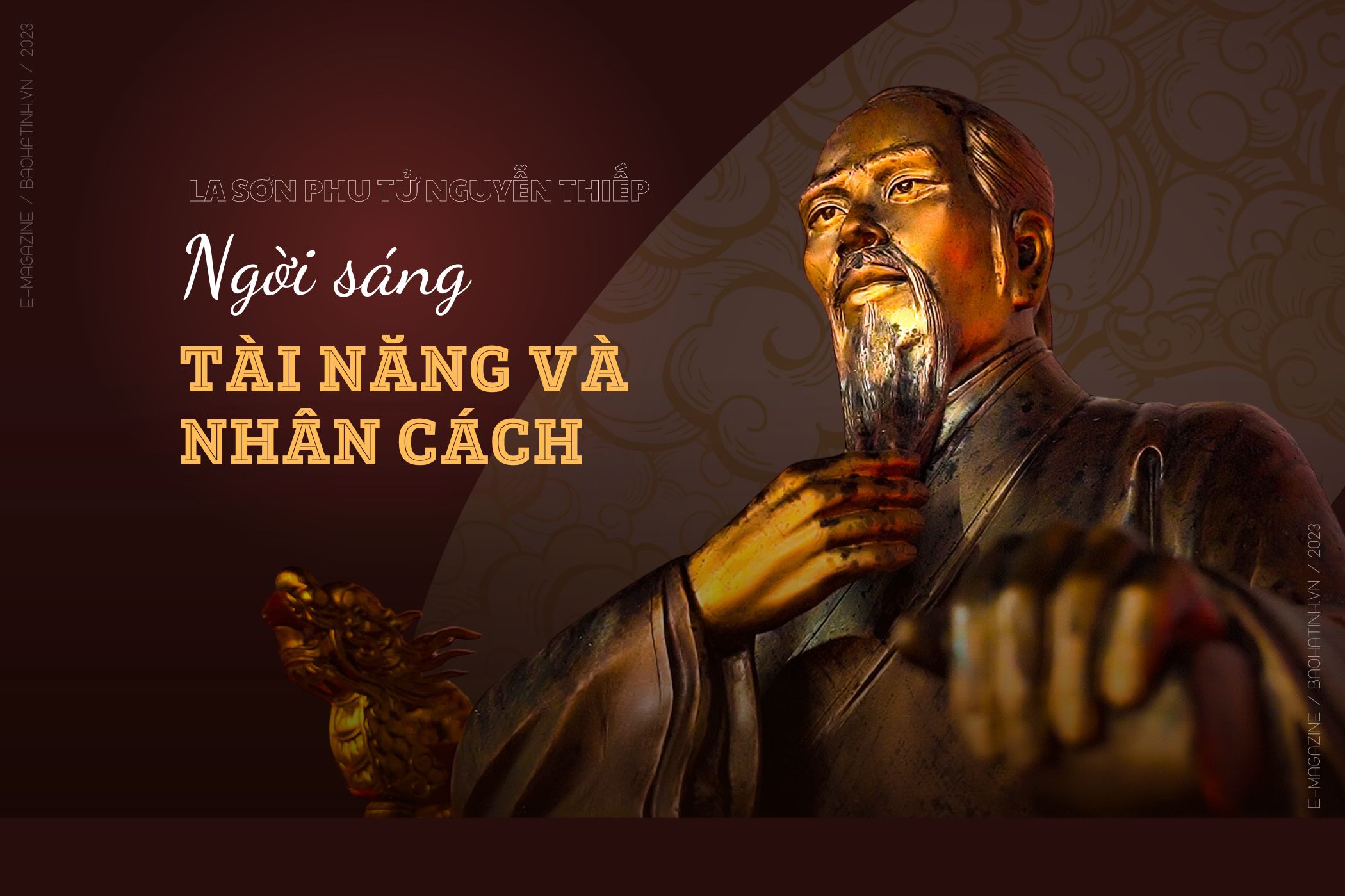
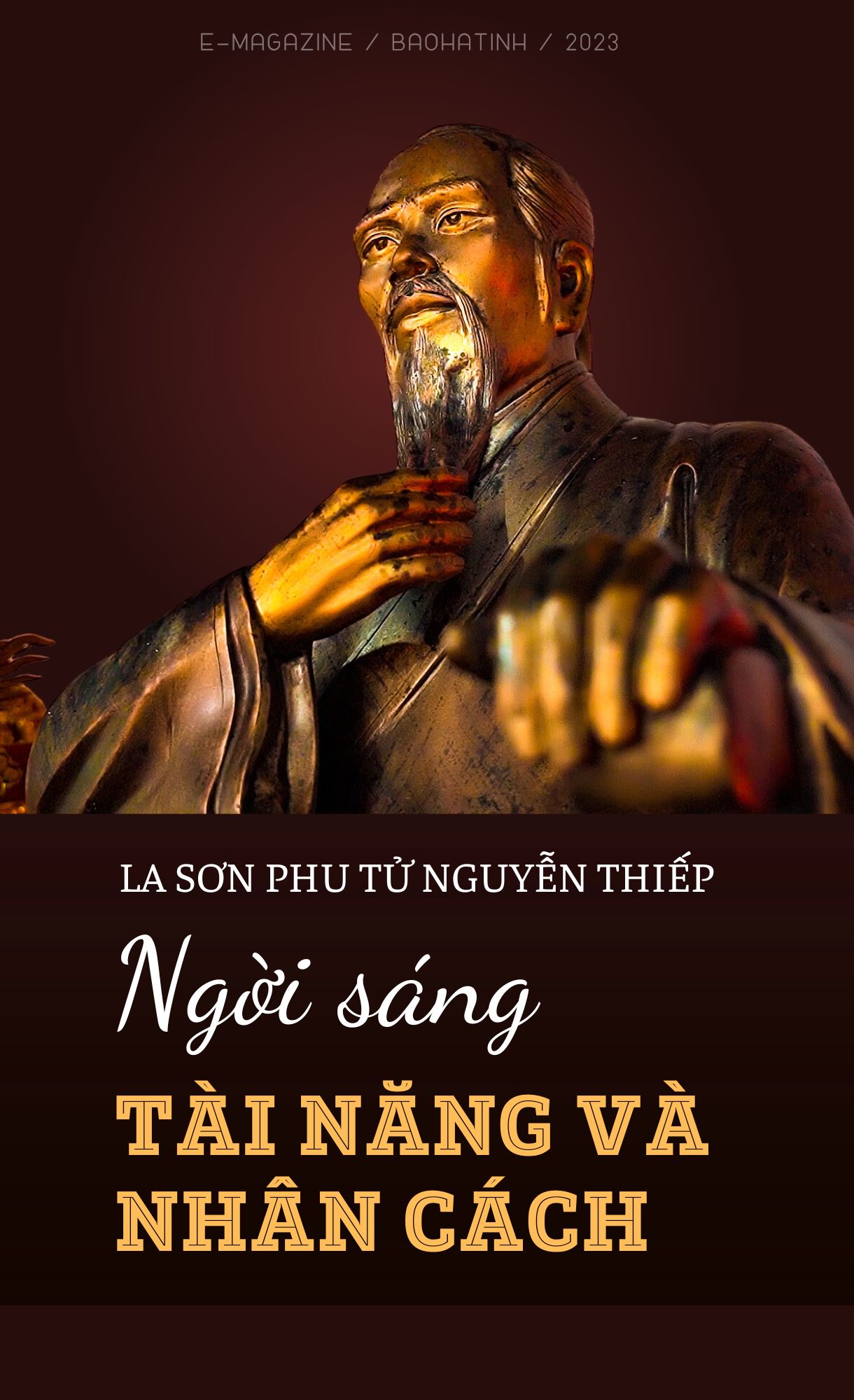
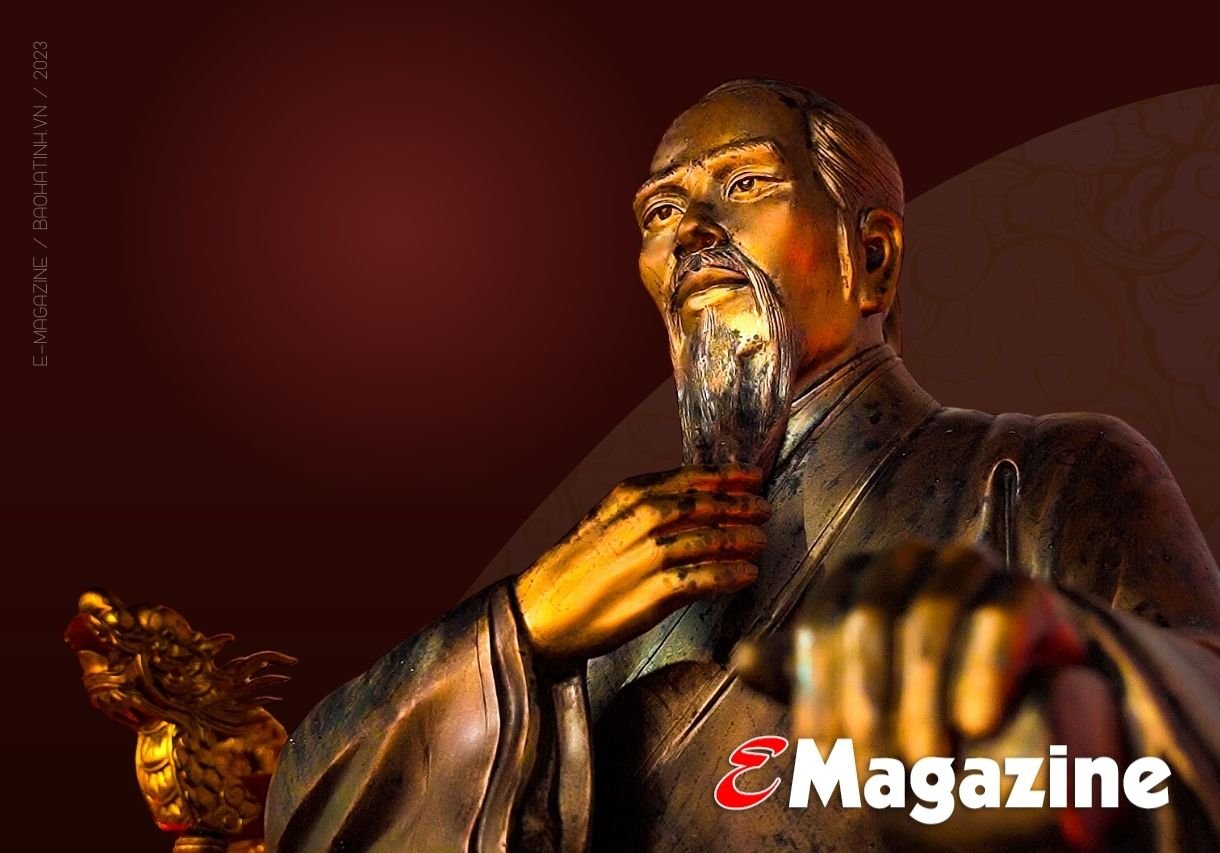

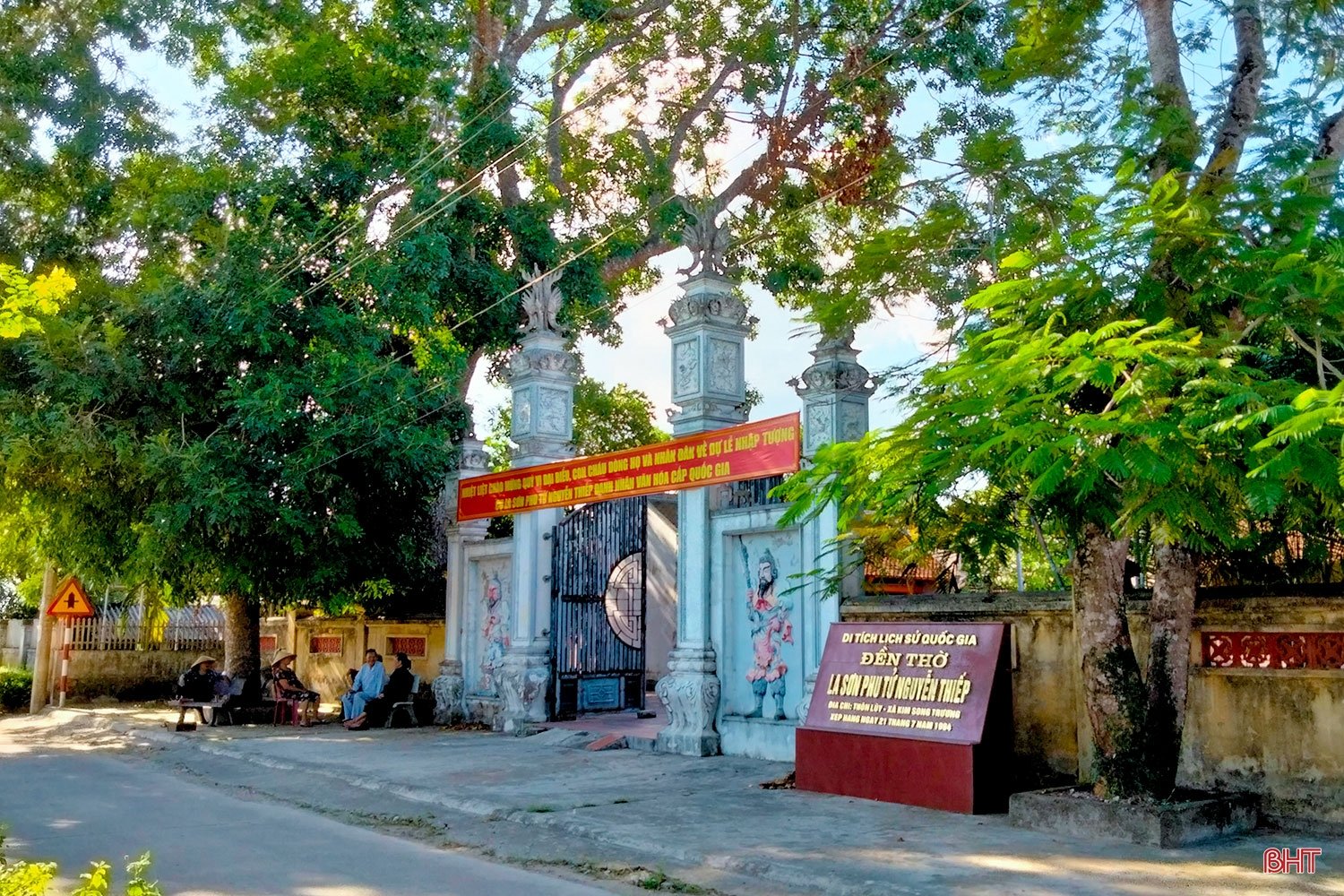

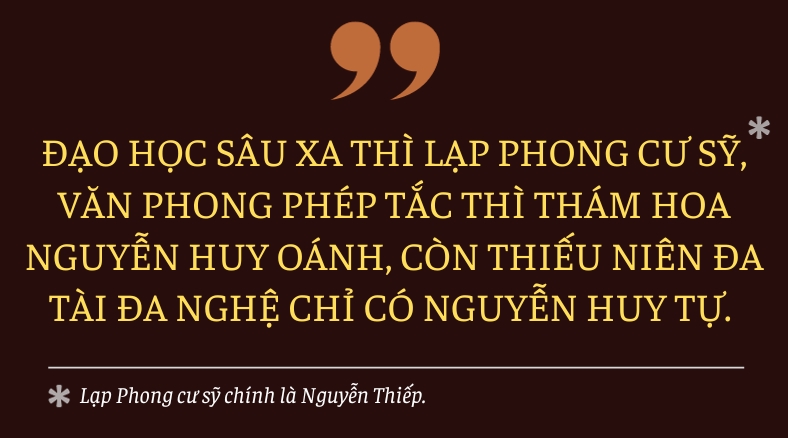
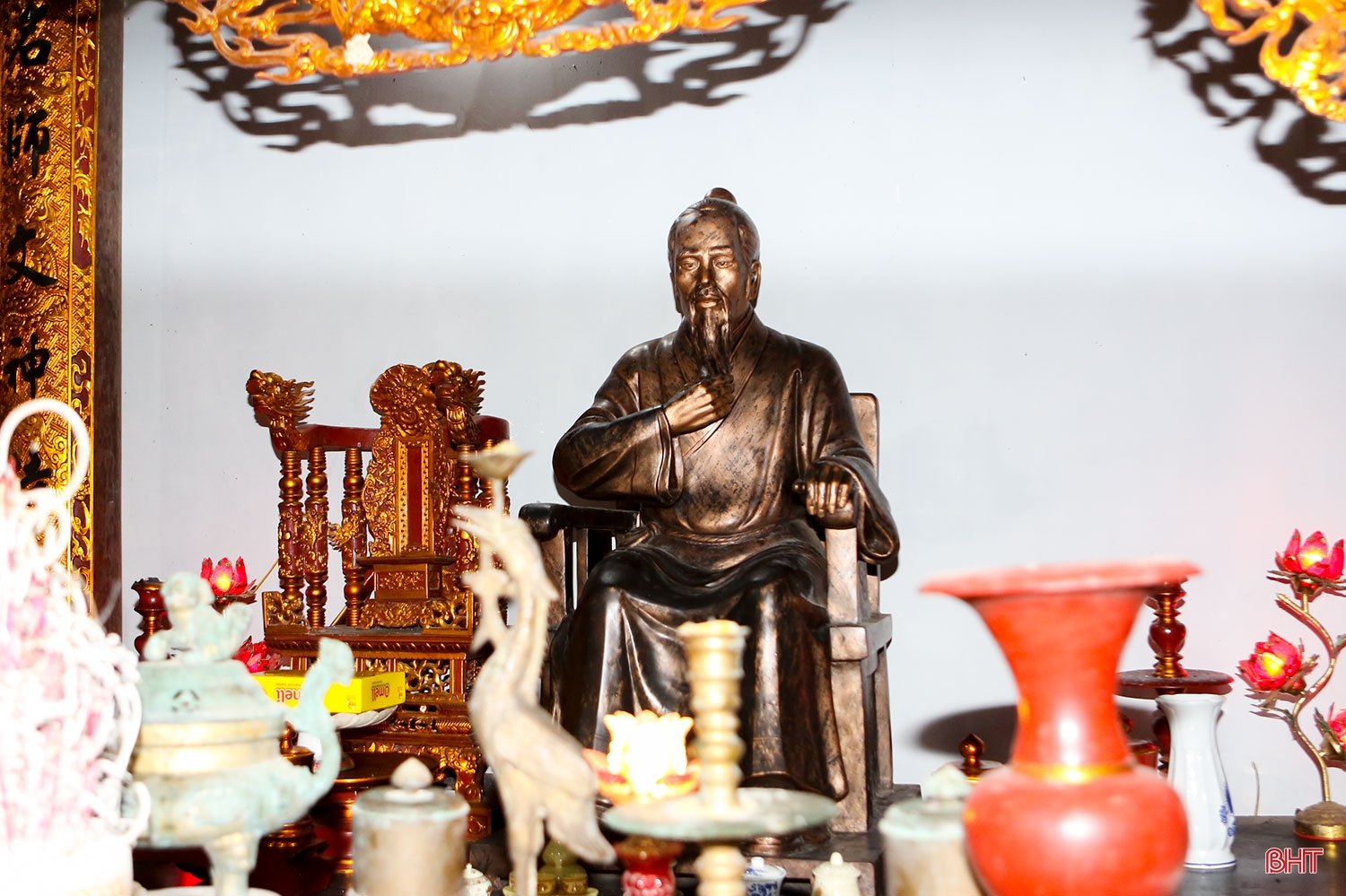
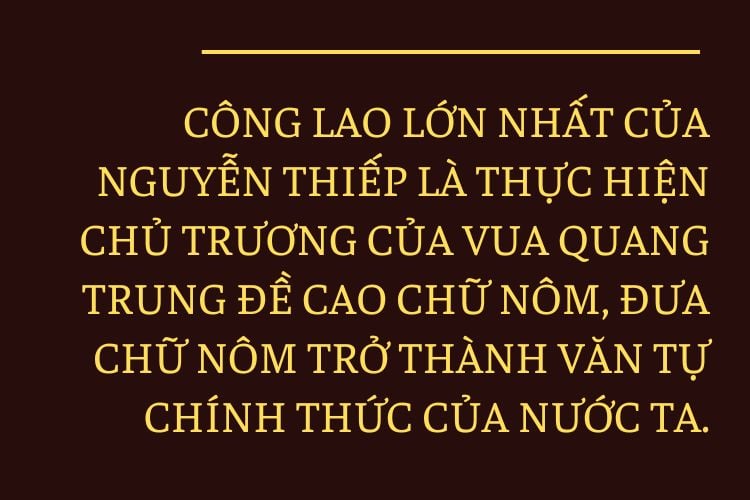

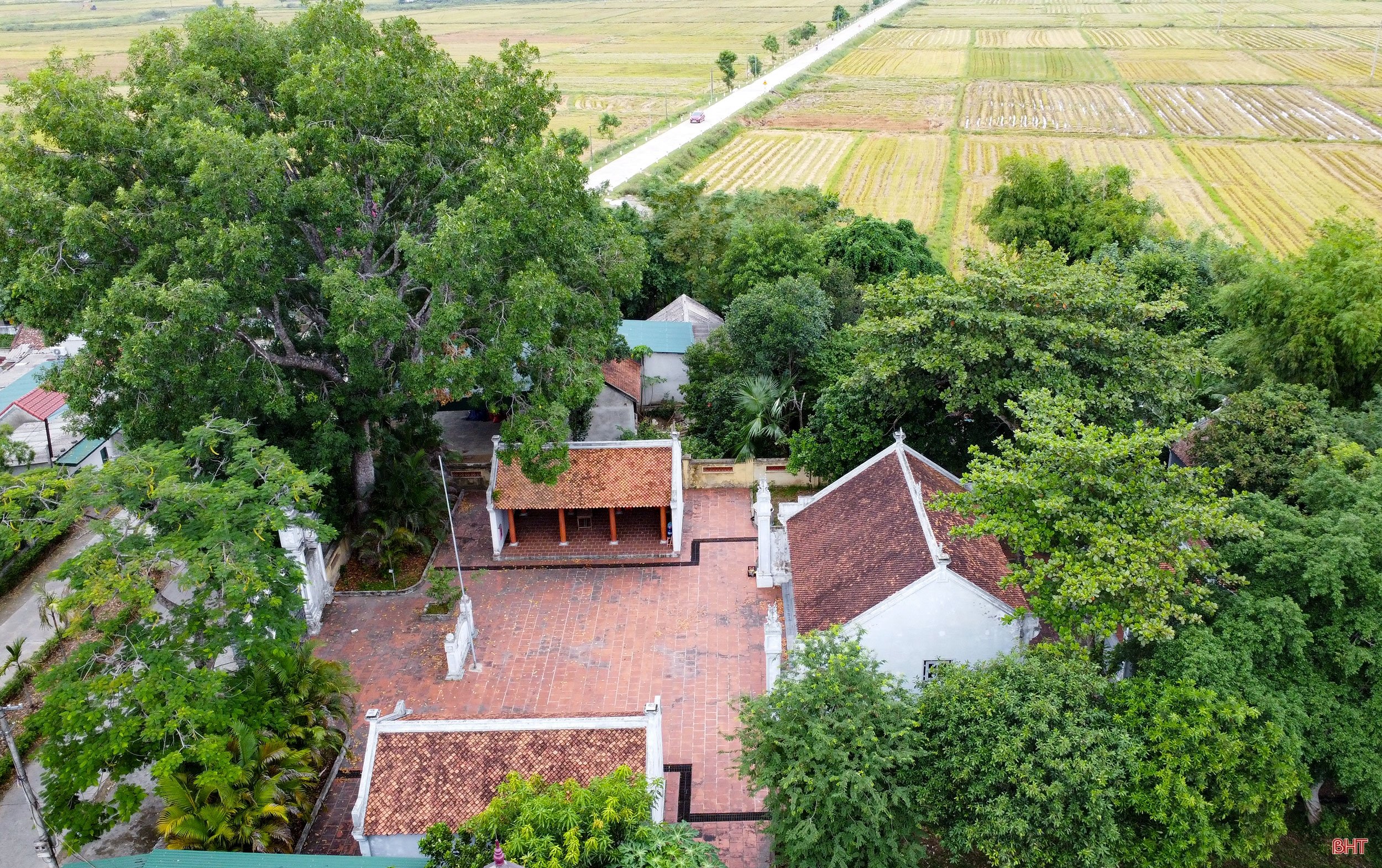




![[Photo] Prime Minister Pham Minh Chinh chairs a meeting of the Government Standing Committee to remove obstacles for projects.](https://vphoto.vietnam.vn/thumb/1200x675/vietnam/resource/IMAGE/2025/10/06/1759768638313_dsc-9023-jpg.webp)
![[Photo] Prime Minister Pham Minh Chinh chaired a meeting of the Steering Committee on the arrangement of public service units under ministries, branches and localities.](https://vphoto.vietnam.vn/thumb/1200x675/vietnam/resource/IMAGE/2025/10/06/1759767137532_dsc-8743-jpg.webp)











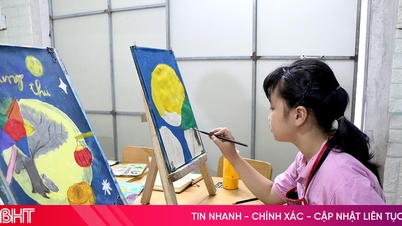








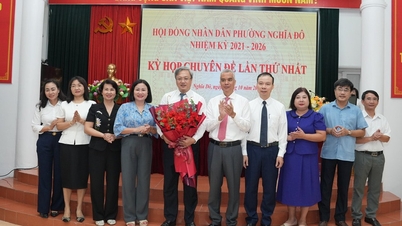
































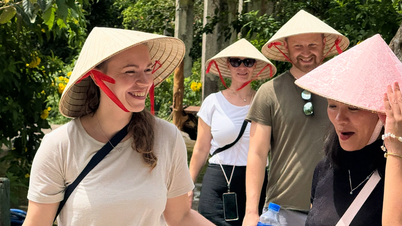



































Comment (0)